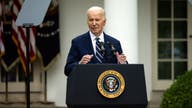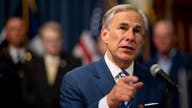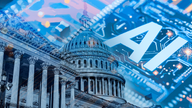Bidens China tariffs will bring more pain to the American consumer: Kenny Polcari
SlateStone Wealth chief market strategist Kenny Polcari argues Bidens China tariffs are a political ploy that will drive up inflation on The Big Money Show.
President Joe Biden announced Tuesday that the U.S. will raise tariffs on certain imports from China by $18 billion in an effort to protect American workers and industries from what he says are unfair trading practices despite his past opposition to similar tariffs.
"If you want to do business in China, you've got to have a 51% Chinese owner. You've got to provide access to all your intellectual property, etc," Biden said during an event at the White House Tuesday. "Sometimes they just outright steal through cyber espionage and other means. And it's been well-documented and internationally recognized. When you make tactics like these, they're not competing. It's not competition. It's cheating."
The tariffs, which are taxes levied on imported products, target industries that the U.S. government has recently invested in — such as EVs, solar energy and semiconductors — as a means of protecting American businesses and consumers from China's trade practices. While some of the tariffs are new, others raise tariff rates that have been in place since 2018.
Biden's China tariffs cover a variety of products and industries, including a 100% tariff on electric vehicles (EVs); 25% on EV batteries; 50% on solar panels and semiconductors; 25% on steel, aluminum, and ship-to-shore cranes; and tariffs ranging between 25% and 50% on certain types of medical equipment.
BIDEN TAKES ACTION AGAINST CHINA'S UNFAIR PRACTICES TO PROTECT US STEEL AND SHIPBUILDING INDUSTRIES

President Joe Biden announces higher tariffs on a range of Chinese imports during an event in the White House Rose Garden on Tuesday, May 14, 2024. (Tierney L. Cross/Bloomberg via Getty Images / Getty Images)
The president's tariff announcement comes in the midst of a tight re-election contest and creates a stark contrast with his approach to tariffs when he was last campaigning for president in 2019. At that time, Biden expressed opposition to tariffs imposed on imports from China by then-President Donald Trump in posts on X, formerly Twitter, on the grounds that the price for those tariffs was ultimately paid by American consumers.
"Trump doesn't get the basics. He thinks his tariffs are being paid by China. Any freshman econ student could tell you that the American people are paying his tariffs. The cashiers at Target see what's going on – they know more about economics than Trump," a June 11, 2019, post from Biden's account read.
"Yet more proof that Trump doesn't care about the farmers, workers, and consumers that are being crushed by his irresponsible tariff war with China. It's easy to act tough when someone is feeling the pain. I will reverse his senseless policies," Biden wrote in a post on Aug. 2, 2019.
CHINA PROTESTS 'ABUSE' OF US EXPORT CONTROLS AFTER TRADE RESTRICTED FOR 37 CHINESE FIRMS
The Chinese government slammed the move, with foreign ministry spokesperson Wang Wenbin saying, "The U.S. is essentially using the ‘overcapacity’ narrative to kneecap other countries' strong industries and practice protectionism and trample on market principles and international trade rules in the name of ‘fair competition.’ This is nothing but bullying."
"The fast-growing Chinese new energy industries are what the world economy needs for green transition," Wenbin added. "We urge the U.S. to abandon its hypocrisy and double standard, and not to make the same mistake of resorting to protectionism."
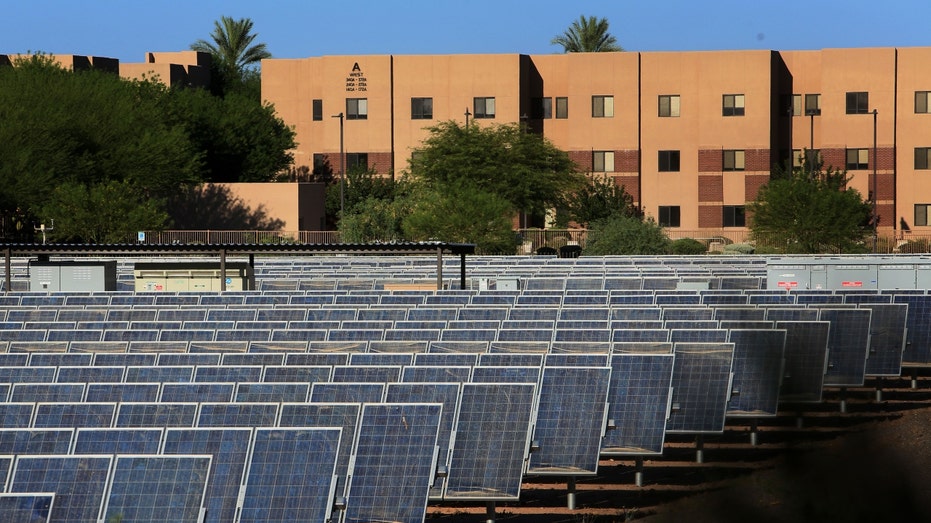
Solar panels and other clean energy technologies are among the products covered by Biden's new China tariffs. (Sandy Huffaker/Corbis via Getty Images / Getty Images)
Scott Lincicome, vice president of general economics and the Stiefel Trade Policy Center at the Cato Institute, told Gxstocks in an interview that the tariff announcement is "more performance art than policy."
"The reality is that pre-existing restrictions on Chinese imports of EVs, solar panels and other things — and steel especially — had effectively barred the vast majority of these products from the U.S. market already," he added. "So tripling tariffs on something that doesn't exist doesn't really do much in the short-term."
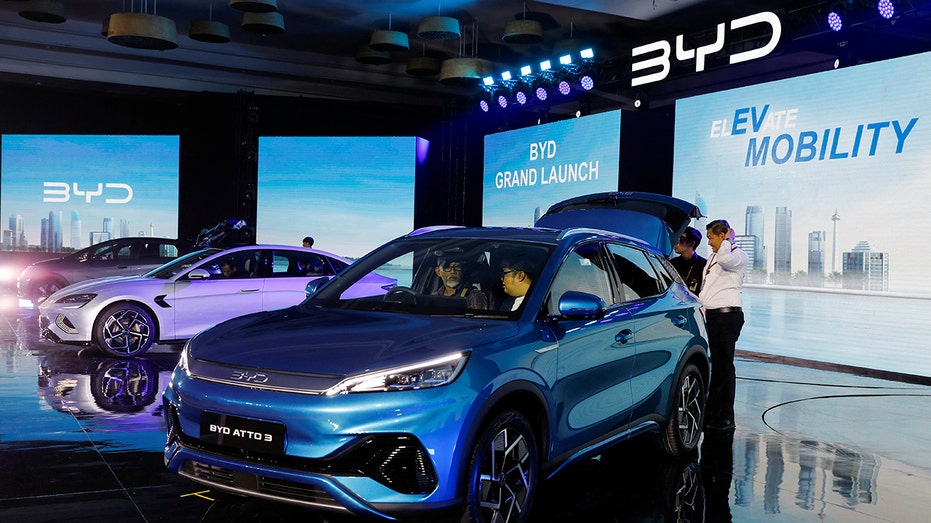
Chinese automaker BYD specializes in low-cost EVs that have given U.S.-automakers competitive challenges in the China market. (REUTERS/Willy Kurniawan / Reuters Photos)
"When it comes to China trade policy, Biden and Trump are indistinguishable. The fact is that Biden has maintained basically all of Trump's China tariffs and now has doubled down on a few supposedly strategic sectors to boot," Lincicome explained.
He also noted that raising tariffs on Chinese EVs, solar panels and batteries contrasts with Biden's stated concerns about climate change and cutting carbon emissions.
"The president says that climate change is an existential crisis that requires kind of an all-hands on deck approach to solving the problem, and yet is banning low-priced EVs and solar panels and batteries and other things that would help decarbonize the U.S. economy," Lincicome said.
GET Gxstocks ON THE GO BY CLICKING HERE
"That's where I think in the long-term, this could have pretty significant effects in that regard," he added. "Quite similar to Japan in the 1980s, EVs today from China appear to be plentiful and a somewhat innovative, low-cost option. By banning them, you're really reducing price and competitive pressures on the remaining EVs in the U.S. market."
Gxstocks' Edward Lawrence contributed to this report.


